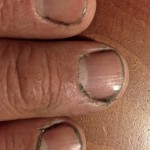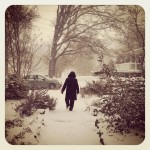My offering tonight is a story I wrote several years ago. Three Christmases ago, my friend Terry helped me turn it into an audio file. This past year has helped me read it a bit differently. I share it again.
A Faraway Christmas
As we gather together on this Silent Night,
To sing ‘round the tree in the soft candlelight,
From a Faraway Christmas, from time that’s grown cold,
Comes a story, you see, that has seldom been told.
Of all of the legends, the best and the worst,
From Christmases all the way back to the first,
This little tale isn’t often remembered
From then until now, down through all those Decembers.
But I found an old copy tucked away on a shelf,
And I turned through the pages, and I thought to myself,
Of all of the times between now and then,
This is the Christmas to hear it again.
Once upon a time in a place we might know,
‘Cause their woods, like ours, often fill up with snow,
Was a small little hamlet — a Long Ago Town —
Of no great importance, or no real renown,
Filled with people who seemed fairly normal to me,
With names like Francesca, Francine, and McGee.
They had puppies and children, ate bread and ice cream,
They went shopping and swimming, they slept and they dreamed;
They laughed and did laundry, they danced and they dined,
And they strung Christmas lights on the big Scottish Pine
That grew in the square in the middle of town,
And when Christmas was over, they took the lights down.
They read the newspaper, they sometimes told jokes,
And some of the children put cards in the spokes
Of their bicycle tires, so they made quite a din
Till it came time for parents to call the kids in.
Yet for all of the things that kept people together,
The nice festive feeling, the Christmas Card weather,
For all of the happiness one was likely to hear,
This Faraway Christmas was marked, mostly, by fear.
Well, yes, they were frightened — but that’s still overstated;
What bothered folks most really could be debated.
Some were tired (exhausted), some were sad or depressed,
Some — the best way to say it — well, their lives were a mess.
Some felt pressure from not having paid all the bills,
Some were keeping dark secrets that were making them ill;
Some felt guilty and thought they were headed for hell,
But the town seemed so happy, who could they tell?
So everyone kept all their feelings inside,
And wished they had someone in whom to confide,
To say, “Life is lousy,” or “I’ve made a mistake,”
Or “Sometimes I’m so sad I don’t want to awake,”
Or “I miss my Grandma,” or “I loved my cat,”
Or “I never, no never get my turn at bat.”
Everyone kept it in, no one said a thing
Until once Christmas Eve, when the man they called Bing
Came to turn on the lights on the tree in the square
And nobody — not anyone — no one was there,
And he looked at the lights as he sat on the curb
And he said — to no one — “I feel quite disturbed;
“I know that it’s Christmas, when I should feel warm,
But I don’t think this year that I can conform.
It’s been hardly two months since my friend passed away;
How can I smile when he’s not here to say,
“’Merry Christmas’?” he asked and burst into tears,
And all of the sadness from all of the years
Came out of his eyes and ran down his cheeks,
And he thought he would sit there and blubber for weeks.
When Samantha showed up — she had not been expected —
And sat down beside him ‘cause he looked neglected.
He looked up through his tears, she said, “You look kinda bad.”
And he answered, “The truth is I feel real sad.”
When she heard those words, tears jumped straight to her eyes,
“The truth is,” she said, “I tell too many lies.
I want people to like me, so I try to act cool,
But deep down inside I feel just like a fool.”
So they sat there and cried, like a sister and brother,
And were joined by one, and then by another,
With a story to tell and feelings to free,
And they wept and they hugged ‘neath the big Christmas Tree.
Can you imagine how many tears fell,
After all of the years that no one would tell
How much they were hurting, how broken or mad,
How long they had smiled when they really felt sad.
How long does it take to clean out your heart,
To get it all out, to make a new start?
That answer’s not easy to you and to me,
But they found out that night, those folks ‘round the tree.
They cried until daybreak, till the first rays of dawn
Broke over the tree tops and spread ‘cross the lawn,
in the new morning light Bing could see all the square;
He also could see the whole town was out there.
They had come through the night, first one, then another
To sit down together like sister and brother
To pour out their hearts for the first time in years,
And let out their feelings, their sadness, their tears.
Samantha stood up and then turned back to Bing,
“You started us crying, now help us to sing.”
So he started a carol, the one he knew best,
About joy to the world, and it burst from his chest.
The others joined in, not because they weren’t sad,
But because they’d admitted the feelings they had,
Everyone sang along, both the sad and the scared,
Because true friends are found when true feelings are shared.
There’s more to the story, but our time is short,
Of how life was changed I cannot now report,
But instead I must ask why this story’s forgotten;
It’s not hopeless or humdrum, it’s not ugly or rotten.
Do you think it’s because people said how they felt,
And if we tell the story then our hearts, too, might melt?
What if we spoke the truth, what if we named our fears,
What if we loosed the sadness we’ve tied up for years?
Would we ever stop crying, would the dawn ever come?
And like those in the story, once the tears had begun
Would we sit on the curb, first one, then another,
And talk about life like sister and brother.
Oh, that is exactly why I chose to tell
This lost little tale we know all too well.
Our world is no different; we’re frightened and sad,
We feel helpless and hopeless, and certainly mad,
But none of those words is the last on this Night
That we wait for the Child, that we pray for the Light,
That we sing of the good news the angels did bring,
And we wish for peace, more than any one thing.
Yes, this story that came from a Long Ago Town
Of no great importance, of no real renown,
Could be ours, if true feelings were what we would say;
And we’d find such a Christmas not so faraway.
Peace
Milton
P. S. — You can find a downloadable version here.


